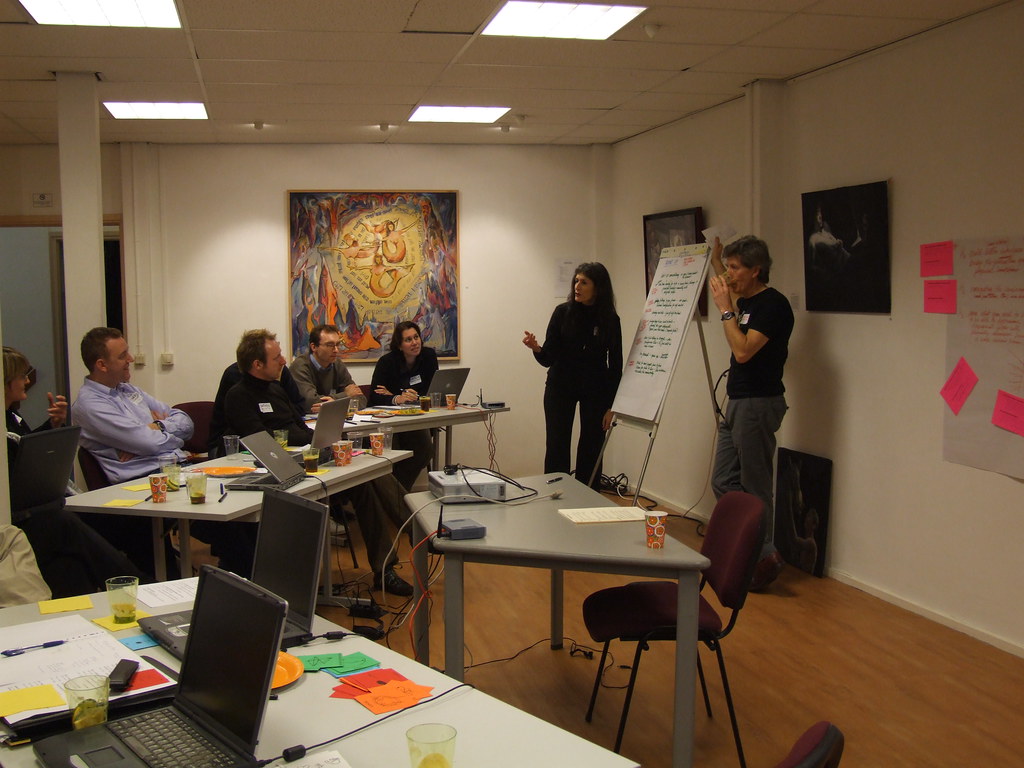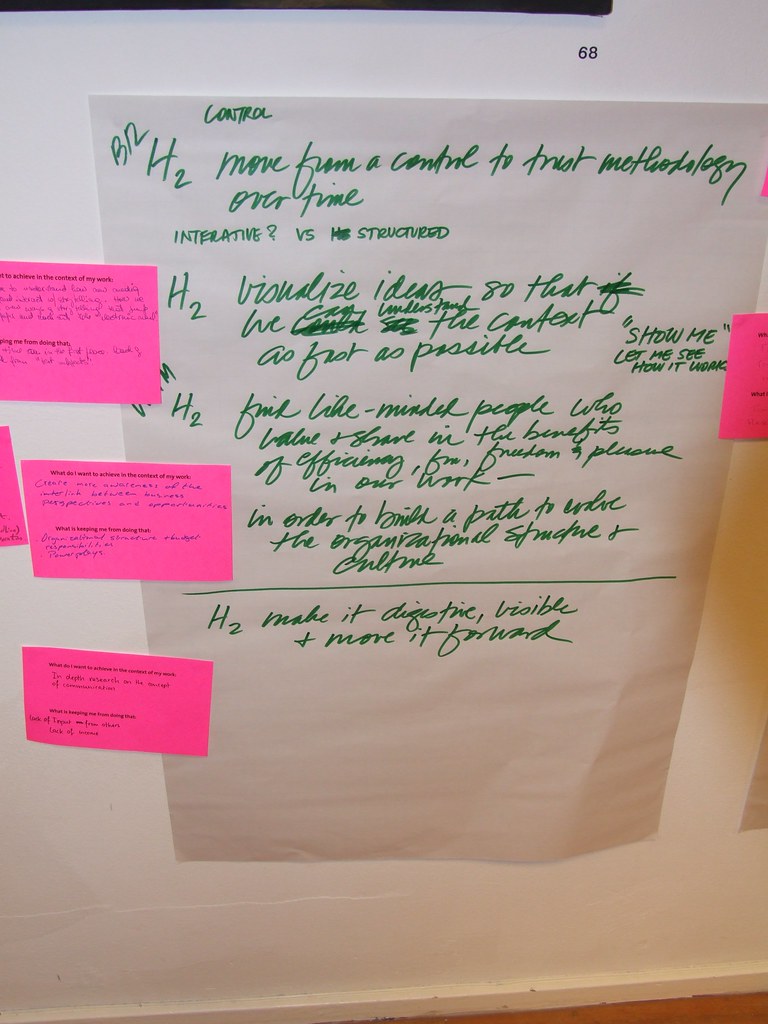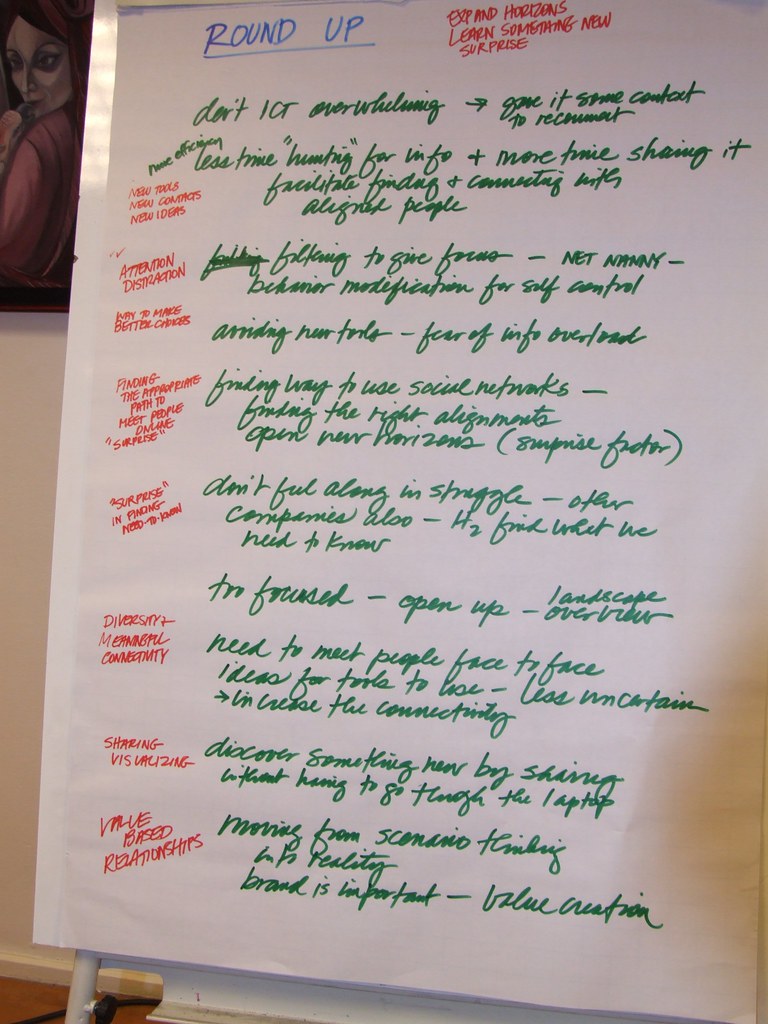
We presented a sampling of 3 presentations from the 14 out of our Social Media seminar series. Normally, each seminar would be a 1 or 2 day event because we ask participants to bring issues from their work into the seminar. We then use those issues as context for discussion and action, with much coaching and interactive engagement. This past Sunday, we engaged the participants in a quickie version, moving them quickly from identifying their wishes and contradictions in their work into 3 mini-presentations: Landscape of Social Media, The Business of Social Media, and Building a Personal Information Strategy. After each presentation, participants each took part in one of 3 round tables: one in context of business, another in context of application, and the other in the context of WIIFM (what’s in it for me). They had to deliver the major issue facing them in the context of what they had just learned in the context of business, application or WIIFM. Each participant had a chance to engage in all 3 round table contexts.

During the round up discussion afterward, we worked with how their wishes and contradictions fit into the 9 major issues they identified. What emerged were 3 glaring contradictions:
-- Control vs. sharing
-- Collecting quantity of names in networking vs making “surprising” connections
-- Distracted by information overload vs. knowing how to connect with the information you want to find

I'm now looking forward to taking this into the deeper seminars so that we actually have the time to work with each person and the context of their work.
No comments:
Post a Comment